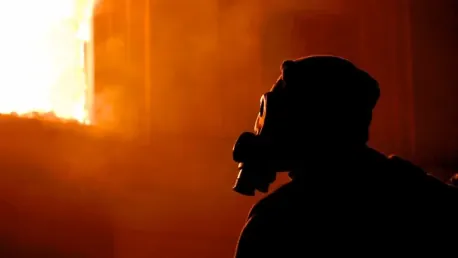Despite Uzbekistan’s energy minister’s 2021 assurance that domestic gas production could meet demand threefold, the current reality paints a starkly different picture. Over the past five years, Uzbekistan has seen a considerable decline in natural gas production, forcing many residents to adopt alternative heating methods. Coal, firewood, and even animal manure have become essential fuels for households trying to stay warm and cook meals. This shift towards alternative fuels is a response to a persistent natural gas shortage, which escalates every winter as energy demands surge. The environmental and health implications of this trend are profound and multifaceted, impacting various aspects of Uzbek society.
Environmental Repercussions of Alternative Fuel Usage
Experts and environmental activists are raising alarms over the significant ecological damage linked to coal combustion and illegal logging for firewood. Burning coal, a major contributor to climate change, releases large amounts of carbon dioxide and other pollutants into the atmosphere. Meanwhile, the illegal felling of trees to obtain firewood is progressively decimating local forests. Thousands of trees have already been lost, leading to habitat destruction and amplified carbon emissions due to reduced carbon sequestration by trees. Activist Abdusalom Ergashev from Ferghana has reported that gas pressure in urban pipelines is so low during winter that households are compelled to burn anything they can find, including coal and dung, further exacerbating environmental degradation.
In response, the government has implemented stricter penalties for illegal tree cutting, enforcing hefty fines and mandatory replanting of saplings. However, these measures have not been sufficient to curtail the widespread reliance on alternative fuels, particularly among rural communities. Many rural households begin preparing months in advance for the harsh winters by stockpiling firewood, collecting animal manure, and buying coal. On average, a rural household in Uzbekistan consumes approximately 1.5 tons of coal each winter, contributing to the increasing levels of air pollution and environmental harm.
Health Impacts of Air Pollution
The pervasive smoke resulting from the burning of coal, firewood, and animal manure has dire health consequences for the Uzbek population. Rising levels of air pollution are causing respiratory problems and other health issues, particularly among vulnerable groups such as children and the elderly. Notable examples include vlogger Akmal Isomiddinov’s description of the air in Ferghana as suffocating, an unfortunate situation echoed across 90 percent of the country. The toxic air quality not only poses a significant threat to public health but also diminishes the overall quality of life for many Uzbeks, who are left with limited options for safe and clean heating sources.
Despite possessing an estimated 1.8 trillion cubic meters of natural gas reserves, Uzbekistan’s deposits are gradually being depleted. The remaining reserves are increasingly difficult to access, requiring modern extraction technologies. Official statistics reveal a consistent decline in gas production, dropping from 61.6 bcm in 2018 to 46.7 bcm in 2023. The government has set an ambitious goal to increase production to 62 bcm by 2030, but the current trends highlight the urgency of addressing both immediate and long-term energy needs to mitigate the environmental and health crises.
Government’s Measures and Future Prospects
In 2021, Uzbekistan’s energy minister confidently claimed that the country’s domestic gas production could meet demand three times over. However, the current state of affairs tells a starkly different story. Over the past five years, Uzbekistan has experienced a significant decline in natural gas production. This shortfall has forced many residents to find alternative heating methods. As a result, coal, firewood, and even animal manure have become crucial fuels for households striving to stay warm and prepare food. This shift towards alternative energy sources is primarily a reaction to a persistent natural gas shortage, which becomes especially acute every winter when energy needs spike. The environmental and health consequences of this trend are serious and complex, affecting multiple facets of Uzbek society. The reliance on these alternative fuels contributes to increased pollution, respiratory issues, and deforestation, further complicating the situation and placing additional burdens on an already strained population.









